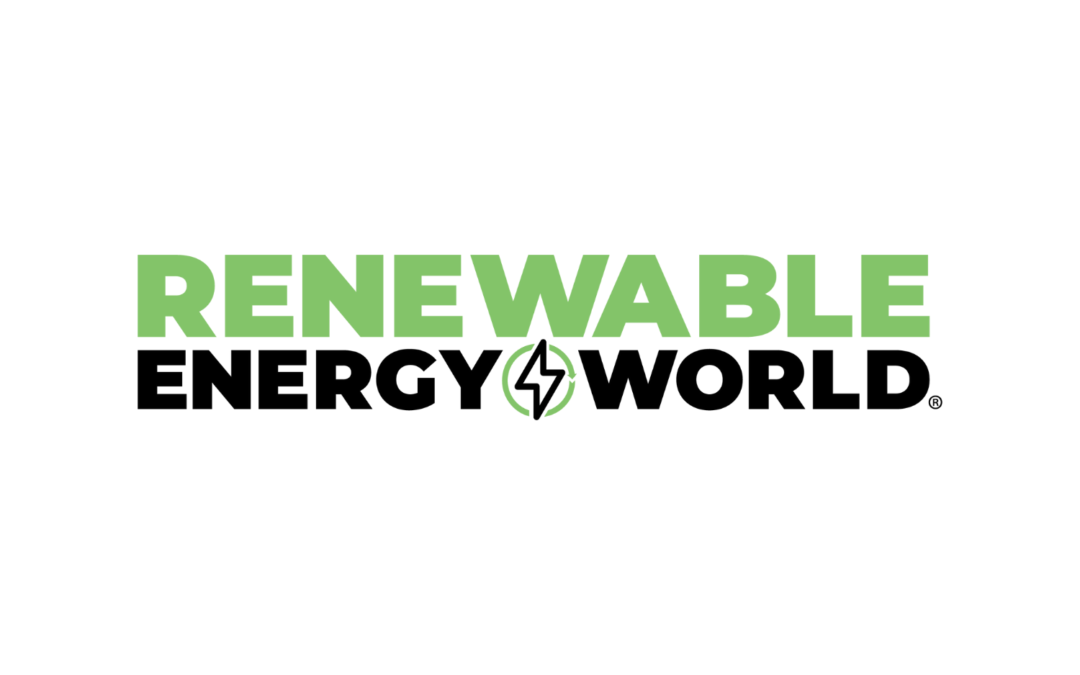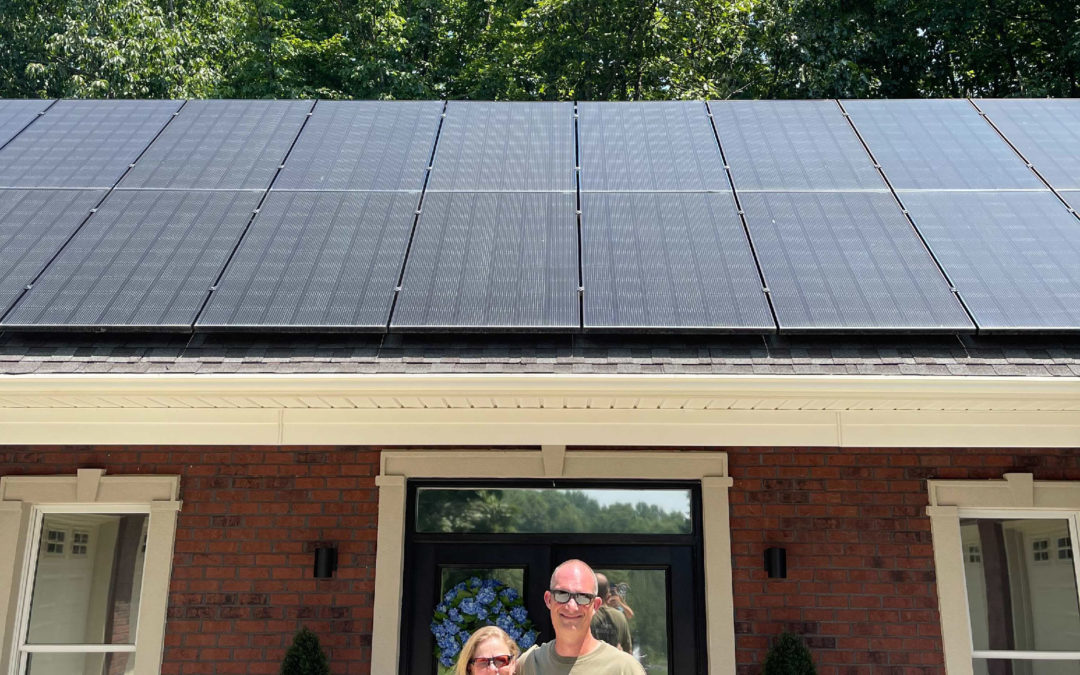
by Renu Energy | May 20, 2022 | Renu Solar News
New Belgium Brewing has installed a 446 kW solar PV system at its Asheville, North Carolina facility.
Installed by Renu Energy Solutions, the rooftop solar system features 1,063 modules capable of generating an estimated 620,000 kWh of electricity annually, about 10% of the onsite energy needs for New Belgium’s brewery, water treatment plant, and tasting room.
To continue reading, visit AltEnergyMag’s website for the full story by clicking this link.
https://www.altenergymag.com/news/2022/05/18/new-belgium-brewing-continues-major-north-carolina-investments-with-solar-installation-at-asheville-brewery/37305/

by Renu Energy | May 20, 2022 | Renu Solar News
New Belgium Brewing, headquartered in Fort Collins, Colorado and famous for its Fat Tire beer and Voodoo Ranger IPA, has announced the completion of a solar installation at its Asheville brewery.
The 446 kW system, installed by Renu Energy Solutions, spans the facility’s 114,000 square foot roof, generating an estimated 620,000 kWh of electricity annually. The installation is comprised of 1,063 Q-Cells Q.Peak Duo L-G6.3 BFG 420W modules, three SolarEdge SE100KUS inverters and one SolarEdge SE66.6KUS inverter, and 527 SolarEdge P960 optimizers, all mounted on a QuickMount QRail Standard pitched racking system.
To continue reading, visit PV Magazine’s page that covers our New Belgium project.
New Belgium brews beer with the help of the sun

by Renu Energy | May 20, 2022 | Renu Solar News
New Belgium Brewing first embarked on solar in 2010 with a 200kW rooftop array on top of its Fort Collins brewery and later added a 96kW solar array in 2015. In 2014, they opened their LEED-certified brewery in Asheville. Solar panels were installed atop the liquid center when the brewery was constructed, with plans to later add an additional array atop the brewhouse and production facility……
To continue reading, visit Craft Brewing Business’ page that covers our New Belgium project.

by Renu Energy | May 20, 2022 | Renu Solar News
New Belgium Brewing has installed a 446 kW solar PV system at its Asheville, North Carolina facility.
Installed by Renu Energy Solutions, the rooftop solar system features 1,063 modules capable of generating an estimated 620,000 kWh of electricity annually, about 10% of the onsite energy needs for New Belgium’s brewery, water treatment plant, and tasting room.
To continue reading, visit Renewable Energy World’s page that covers our New Belgium project.
New Belgium Brewing adds solar to North Carolina facility

by Renu Energy | May 19, 2022 | Uncategorized
Net metering and Time of Use (TOU) are two different billing mechanisms used by utilities to compensate homeowners who generate their own electricity using solar panels.
Net metering allows homeowners to send excess electricity generated by their solar panels back to the grid, and receive credits on their utility bill for the electricity they’ve contributed. Essentially, the homeowner is only paying for net electricity used (i.e., the difference between the electricity generated and consumed).
Time of Use billing, on the other hand, is based on the time of day and the season when electricity is used. Electricity rates are higher during peak hours when demand is high and lower during off-peak hours when demand is low. With TOU billing, homeowners who generate their own electricity can choose to use it during peak hours when electricity rates are high, and sell excess electricity back to the grid during off-peak hours.
In summary, net metering is a simple way to compensate homeowners for the excess electricity they generate, while Time of Use billing allows homeowners to potentially save money by consuming or selling electricity during times when rates are favorable.In North Carolina and South Carolina, both net metering and Time of Use (TOU) billing are available options for homeowners who generate their own electricity using solar panels.
North Carolina has implemented net metering policies that allow homeowners to receive credits on their utility bill for the excess electricity generated by their solar panels and sent back to the grid. The credits are based on the retail rate for electricity and are applied to the homeowner’s next bill.
South Carolina also has net metering policies in place, with some utilities offering TOU billing as an alternative option. With TOU billing in South Carolina, homeowners can potentially save money by consuming or selling electricity during times when rates are lower.
It’s important to note that the specific policies and regulations regarding net metering and TOU billing in North Carolina and South Carolina can vary by utility, so it’s recommended to check with your local utility for more information





